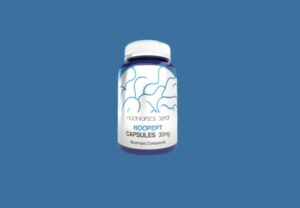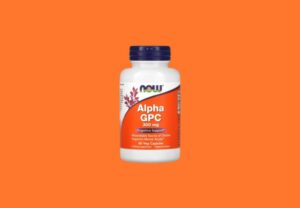Table of Contents
Introduction
Adderall, a stimulant that ignites the central nervous system, is composed of amphetamine and dextroamphetamine, and it’s only attainable through a prescription. Primarily, it’s the go-to medication for treating attention deficit hyperactivity disorder (ADHD) and narcolepsy. Throughout this article, we will take a deep dive into the abyss of Adderall, its inner workings, its pluses and minuses, its appropriate dosage, its ability to intermingle with other medications, and how it stacks up against other ADHD medications.
Definition of Adderall
The pharmacological makeup of Adderall entails a combination of two potent stimulant drugs, namely amphetamine and dextroamphetamine. Adderall is available in two distinct formulations, immediate-release (IR) and extended-release (XR). The immediate-release variant is usually ingested two to three times per day, while the extended-release version is taken only once in a day, providing a sustained release of the medication.
Brief history of Adderall
Adderall was first introduced in 1996 by the pharmaceutical company Shire. It was initially approved by the U.S. Food and Drug Administration (FDA) for the treatment of ADHD in children. Since then, it has become one of the most commonly prescribed medications for ADHD.
Reasons for taking Adderall
Adderall is primarily prescribed to treat ADHD and narcolepsy. ADHD is a condition characterized by symptoms such as inattention, hyperactivity, and impulsivity. Narcolepsy is a sleep disorder that causes excessive daytime sleepiness and sudden attacks of sleep.
How Adderall Works
Mechanism of action
Adderall works by increasing the levels of dopamine and norepinephrine in the brain. Dopamine and norepinephrine are neurotransmitters that are involved in the regulation of attention, motivation, and pleasure. By increasing the levels of these neurotransmitters, Adderall can improve focus, attention, and mood.
Effects on the brain and body
Adderall can have a range of effects on the brain and body, including increased alertness, decreased appetite, and increased heart rate and blood pressure. It can also cause feelings of euphoria and increased sociability, which can make it appealing for non-medical use.
Benefits of Adderall
Improved focus and attention
One of the primary benefits of Adderall is improved focus and attention. It can help individuals with ADHD to stay on task and avoid distractions. It can also improve cognitive performance, such as memory and problem-solving abilities.
Increased motivation and productivity
Adderall can also increase motivation and productivity. It can help individuals with ADHD to overcome procrastination and achieve their goals. It can also be useful for individuals who need to work long hours or study for exams.
Treatment for ADHD and narcolepsy
Adderall is an effective treatment for ADHD and narcolepsy. It can help to reduce the symptoms of ADHD, such as inattention, hyperactivity, and impulsivity. It can also help individuals with narcolepsy to stay awake during the day and improve their overall quality of life.
Side Effects of Adderall
Short-term side effects
Adderall can cause a range of short-term side effects, including decreased appetite, insomnia, dry mouth, headache, and stomach pain. These side effects are usually mild and go away on their own after a few days.
Long-term side effects
Long-term use of Adderall can lead to more serious side effects, such as heart problems, high blood pressure, and psychosis. It can also increase the risk of addiction and dependence.
Overdose and addiction risks
Taking too much Adderall can lead to an overdose, which can cause symptoms such as chest pain, rapid heartbeat, and seizures. It can also increase the risk of addiction and dependence, especially for individuals who take the medication for non-medical reasons.
Adderall Dosage and Administration
Dosage recommendations
The dosage of Adderall depends on a variety of factors, including age, weight, and medical history. Typically, the recommended starting dose for ADHD is 5mg once or twice daily, while the recommended starting dose for narcolepsy is 10mg once daily.
Administration methods
Adderall is available in both immediate-release (IR) and extended-release (XR) formulations. The immediate-release version is typically taken two to three times a day, while the extended-release version is taken once a day.
Adderall Interactions
Interactions with other medications
Adderall can interact with a range of medications, including antidepressants, antacids, and blood pressure medications. It is important to talk to your doctor or pharmacist before taking Adderall with any other medications.
Interactions with alcohol and other substances
Adderall can also interact with alcohol and other substances, such as caffeine and nicotine. These interactions can increase the risk of side effects and can be dangerous for some individuals.
Adderall vs. Other ADHD Medications
Comparison with Ritalin and Vyvanse
Adderall is not the only medication available for the treatment of ADHD. Ritalin and Vyvanse are two other commonly prescribed medications for this condition. Ritalin works by increasing the levels of dopamine in the brain, while Vyvanse works by converting to dextroamphetamine in the body.
Benefits and drawbacks of each medication
Each medication has its own benefits and drawbacks. Adderall is known for its rapid onset of action and short duration of effect, while Ritalin is known for its long duration of effect. Vyvanse is a newer medication that is less likely to be abused than Adderall or Ritalin.
Conclusion
Adderall is a widely used medication for the treatment of ADHD and narcolepsy. It can improve focus, attention, and productivity, but it can also cause a range of side effects and risks. It is important to talk to your doctor or pharmacist before taking Adderall, and to follow the recommended dosage and administration guidelines.
FAQs
Can Adderall be used for weight loss?
No, Adderall is not approved for weight loss and should not be used for this purpose.
How long does Adderall stay in your system?
The effects of Adderall typically last for 4-6 hours for the immediate-release version, and up to 12 hours for the extended-release version. However, the drug can stay in your system for up to three days.
Is it safe to take Adderall while pregnant?
There is limited research on the safety of Adderall during pregnancy. It is important to talk to your doctor before taking Adderall if you are pregnant or planning to become pregnant.
Can Adderall cause addiction?
Yes, Adderall can be addictive, especially for individuals who take the medication for non-medical reasons or who take it in higher doses than recommended.
What should I do if I miss a dose of Adderall?
If you miss a dose of Adderall, take it as soon as you remember. If it is close to your next scheduled dose, skip the missed dose and resume your regular dosing schedule. Do not take extra medication to make up for a missed dose.








